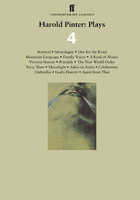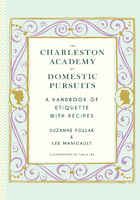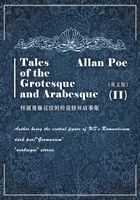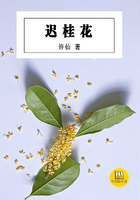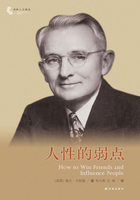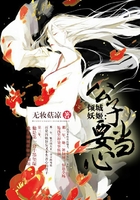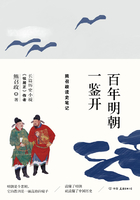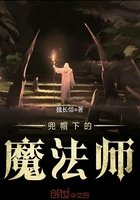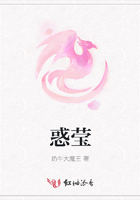Without bothering to glance into the Carabinieri station to see if his return with the Captain had been noticed, Brunetti went back to the boat, where he found Monetti returned to his newspaper. Years ago, a foreigner – he couldn't now remember who it was – had remarked on how slowly Italians read. Ever since then, whenever he observed someone nursing a single newspaper all the way from Venice to Milan, Brunetti thought of this; Monetti had certainly had a good deal of time, but he appeared still to be in the first pages. Perhaps boredom had forced him to begin reading through it a second time.
'Thanks, Monetti,' he said, stepping onto the deck.
The young man looked up and smiled. 'I tried to slow her down as much as possible, sir. But it's crazy, with all these maniacs who get right on your tail and follow too closely.' Brunetti had been in his thirties when he learned to drive, forced to do it when he was posted to Naples for a three-year assignment. He did it with trepidation, and he drove badly, slowed by caution, and too often enraged by those same maniacs, the variety who drove cars, not boats.
'Would you mind taking me up to San Silvestro?' he asked.
'I'll take you right to the end of the calle if you'd like, sir.'
'Thanks, Monetti. I would.'
Brunetti flipped the rope up over the top of the piling and wrapped it carefully around the metal stanchion on the side of the boat. He moved ahead and stood beside Monetti as they started up the Grand Canal. Little that was to be seen down at this end of the city interested Brunetti, surely as close to a slum as the island had. They passed the railway station, a building that surprised by its drabness.
It would have been easy for Brunetti to grow indifferent to the beauty of the city, to walk in the midst of it, looking and not really seeing. But then it always happened: a window he had never noticed before would swim into his ken, or the sun would gleam in an archway, and he would actually feel his heart tighten in response to something infinitely more complex than beauty. He supposed, when he bothered to think about it, that it had something to do with language, with the fact that there were fewer than eighty thousand people who lived in the city, and perhaps with the fact that he had gone to kindergarten in a fifteenth-century palazzo. He missed this city when he was away from it, much in the same way he missed Paola, and he felt complete and whole only while he was here. One glance around him, as they sped up the canal, was proof of the wisdom of all of this. He had never spoken of this to anyone. No foreigner would understand; any Venetian would find it redundant.
Soon after they passed under the Rialto, Monetti pulled the boat over to the right. At the end of the long calle that led up to Brunetti's building, he slipped the engine into neutral, hovered for the briefest of instants beside the embankment, and let Brunetti jump to shore. Even before Brunetti could turn to wave his thanks, Monetti was gone, swinging around, back down the way he had come, blue light flashing as he took himself home to dinner.
Brunetti walked up the calle, legs tired with all the jumping on and off boats that he seemed to have been doing all day, since the first boat had picked him up here more than twelve hours ago. He opened the enormous door into the building and closed it quietly behind him. The narrow stairway that hairpinned its way up to the top of the building served as a perfect trumpet of sound, and they could, even four floors above, hear it whenever it slammed. Four floors. The thought burdened him.
By the time he reached the final turn in the staircase, he could smell the onions, and that did a great deal to make the last flight easier. He glanced at his watch before he put his key into the door. Nine-thirty. Chiara would still be awake, so he could at least kiss her good night and ask her if she had done her homework. If Raffaele were there, he could hardly risk the first, and the second would be futile.
'Ciao, Papà,' Chiara called from the living room. He put his jacket in the cupboard and went down the corridor to the living room. Chiara lolled in an easy chair, looking up from a book that lay open in her lap.
As he walked into the room, he automatically switched on the track lighting above her. 'You want to go blind?' he asked, probably for the seven hundredth time.
'Oh, Papà, I can see enough to read.'
He bent over her and kissed her on the cheek she held up to him. 'What are you reading, Angel?'
'It's a book Mamma gave me. It's fabulous. It's about this governess who goes to work for a man, and they fall in love, but he's got this crazy wife locked up in the attic, so he can't marry her, even though they're really in love. I just got to the part where there's a fire. I hope she burns up.'
'Who, Chiara?' he asked. 'The governess or the wife?'
'The wife, silly.'
'Why?'
'So Jane Eyre,' she said, making a hash of the name, 'can marry Mister Rochester,' to whose name she did equal violence.
He was about to ask another question, but she had gone back to the fire, so he went into the kitchen, where Paola was bent over the open door of the washing-machine.
'Ciao, Guido,' she said, standing. 'Dinner in ten minutes.' She kissed him, turned back to the stove, where onions were browning in a pool of oil.
'I just had a literary discussion with our daughter,' he said. 'She was explaining the plot of a great classic of English literature to me. I think it might be better for her if we forced her to watch the Brazilian soap operas on television. She's in there, rooting for the fire to kill Mrs Rochester.'
'Oh, come on, Guido, everyone roots for the fire when they read Jane Eyre.' She stirred the onions around in the pan and added, 'Well, at least the first time they read it. It isn't until later that they realize what a cunning, self-righteous little bitch Jane Eyre really is.'
'Is that the kind of thing you tell your students?' he asked, opening a cabinet and pulling out a bottle of Pinot Noir.
The liver lay sliced and waiting on a plate beside the frying pan. Paola slipped a slotted ladle under it and flipped half into the pan, then stepped back to avoid the spitting oil. She shrugged. Classes at the university had just resumed, and she obviously didn't want to think about students on her own time.
Stirring, she asked, 'What was the captain-doctor like?'
He pulled down two glasses and poured wine into both. He leaned back against the worktop, handed her one, sipped, answered, 'Very young and very nervous.' Seeing that Paola continued to stir, he added, 'And very pretty.'
Hearing that, she sipped at the glass she held in one hand and looked at him.
'Nervous about what?' She took another sip of the wine, held the glass up to the light, and said, 'This isn't as good as what we got from Mario, is it?'
'No,' he agreed. 'But your cousin Mario is so busy making a name for himself in the international wine trade that he doesn't have time to bother with orders as small as ours.'
'He would if we paid him on time,' she snapped.
'Paola, come on. That was six months ago.'
'And it was more than six months that we kept him waiting to be paid.'
'Paola, I'm sorry. I thought I'd paid him, and then I forgot about it. I apologized to him.'
She set the glass down and gave the liver a quick jab.
'Paola, it was only two hundred thousand lire. That's not going to send your cousin Mario to the poorhouse.'
'Why do you always call him, "my cousin Mario?"'
Brunetti came within a hair's breadth of saying, 'Because he's your cousin and his name is Mario,' but, instead, set his glass down on the worktop and put his arms around her. For a long time, she remained stiff, leaning away from him. He increased the pressure of his arms around her, and she relaxed, leaned against him, and put her head back against his chest.
They stayed like that until she poked him in the ribs with the end of the spoon and said, 'Liver's burning.'
He released her and picked up his glass again.
'I don't know what she's nervous about, but it upset her to see the corpse.'
'Wouldn't anyone be upset to see a dead man, especially someone they knew?'
'No, it was more than that. I'm sure there was something between them.'
'What sort of something?'
'The usual sort.'
'Well, you said she was pretty.'
He smiled. 'Very pretty.' She smiled. 'And very,' he began, searching for the right word. The right one didn't make any sense. 'And very frightened.'
'Why do you say that?' Paola asked, carrying the pan to the table and setting it down on a ceramic tile. 'Frightened about what? That she'd be suspected of killing him?'
From beside the stove, he took the large wooden cutting board and carried it to the table. He sat and lifted the kitchen towel spread across the board and exposed the half-wheel of golden polenta that lay, still warm and now grown firm, beneath it. She brought a salad and the bottle of wine, pouring them both more before she sat down.
'No, I don't think it's that,' he said, and spooned liver and onions onto his plate, then added a broad wedge of polenta. He speared a piece of liver with his fork, pushed onions on top of it with his knife, and began to eat. As was his habit, he said nothing until his plate was empty. When the liver was gone and he was mopping the juice up with what remained of his second helping of polenta, he said, 'I think she might know, or have some idea about, who killed him. Or why he was killed.'
'Why?'
'If you'd seen her look when she saw him. No, not when she saw that he was dead and that it was really Foster, but when she saw what killed him – she was on the edge of panic. She got sick.'
'Sick?'
'Threw up.'
'Right there?'
'Yes. Strange, isn't it?'
Paola thought for a while before she answered. She finished her wine, poured herself another half-glass. 'Yes. It's a strange reaction to death. And she's a doctor?' He nodded. 'Makes no sense. What could she be afraid of?'
'Anything for dessert?'
'Figs.'
'I love you.'
'You mean you love figs,' she said and smiled.
There were six of them, perfect and moist with sweetness. He took his knife and began to peel one. When he was done, juice running down both hands, he cut it in half and handed the larger piece to her.
He crammed most of the other into his mouth and wiped at the juice that ran down his chin. He finished the fig, ate two more, wiped at his mouth again, cleaned his hands on his napkin, and said, 'If you give me a small glass of port, I'll die a happy man.'
Getting up from the table, she asked, 'What else could she be afraid of?'
'As you said, that she might be suspected of having something to do with it. Or because she did have something to do with it.'
She pulled down a squat bottle of port, but before she poured it into two tiny glasses, she took the plates from the table and placed them in the sink. When that was done, she poured them both glasses of port and brought them back to the table. Sweet, it caught up with the lingering taste of fig. A happy man. 'But I don't think it's either of those.'
'Why?'
He shrugged. 'She doesn't seem like a murderer to me.'
'Because she's pretty?' Paola asked and sipped at her port.
He was about to answer that it was because she was a doctor, but then he remembered what Rizzardi had said, that the person who killed the young man knew where to put the knife. A doctor would know that. 'Maybe,' he said, then changed the subject and asked, 'Is Raffi here?' He looked at his watch. After ten. His son knew he was supposed to be home by ten on school nights.
'Not unless he came in while we were eating,' she answered.
'No, he didn't,' Brunetti answered, sure of the answer, unsure of how he knew.
It was late, they'd had a bottle of wine, glorious figs, and perfect port. Neither of them wanted to talk about their son. He'd still be there and still be theirs in the morning.
'Should I put those in the sink for you?' he asked, meaning the dishes but not meaning the question.
'No. I'll do it. You go and tell Chiara to go to bed.' The dishes would have been less trouble.
'Fire out?' he asked when he walked into the living room.
She didn't hear him. She was hundreds of miles and years away from him. She sat slouched low in the chair, her legs stretched out before her. On the arm of the chair were two apple cores, a packet of biscuits on the floor beside her.
'Chiara,' he said, then louder, 'Chiara.'
She glanced up from the page, not seeing him for a moment, then registering that it was her father. She looked immediately down at the page, forgetting him.
'Chiara, it's time to go to bed.'
She turned a page.
'Chiara, did you hear me? It's time to go to bed.'
Still reading, she pushed herself up from the chair with one hand. At the bottom of a page, she paused long enough to look up from the book and give him a kiss, then she was gone, finger in the page. He lacked the courage to tell her to leave the book behind. Well, if he got up in the night, he could turn her light off.
Paola came into the living room. She bent and turned off the light beside the chair, picked up the apple cores and the packet of biscuits, and went back into the kitchen. Brunetti switched off the light and went down the corridor towards the bedroom.

